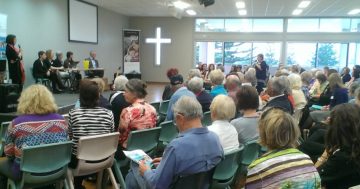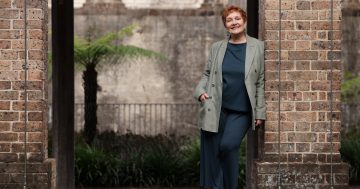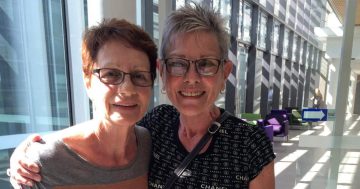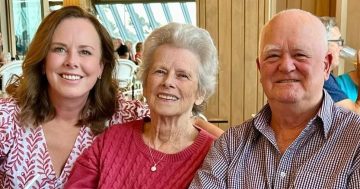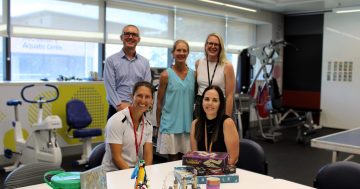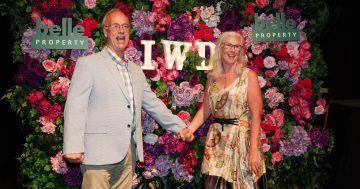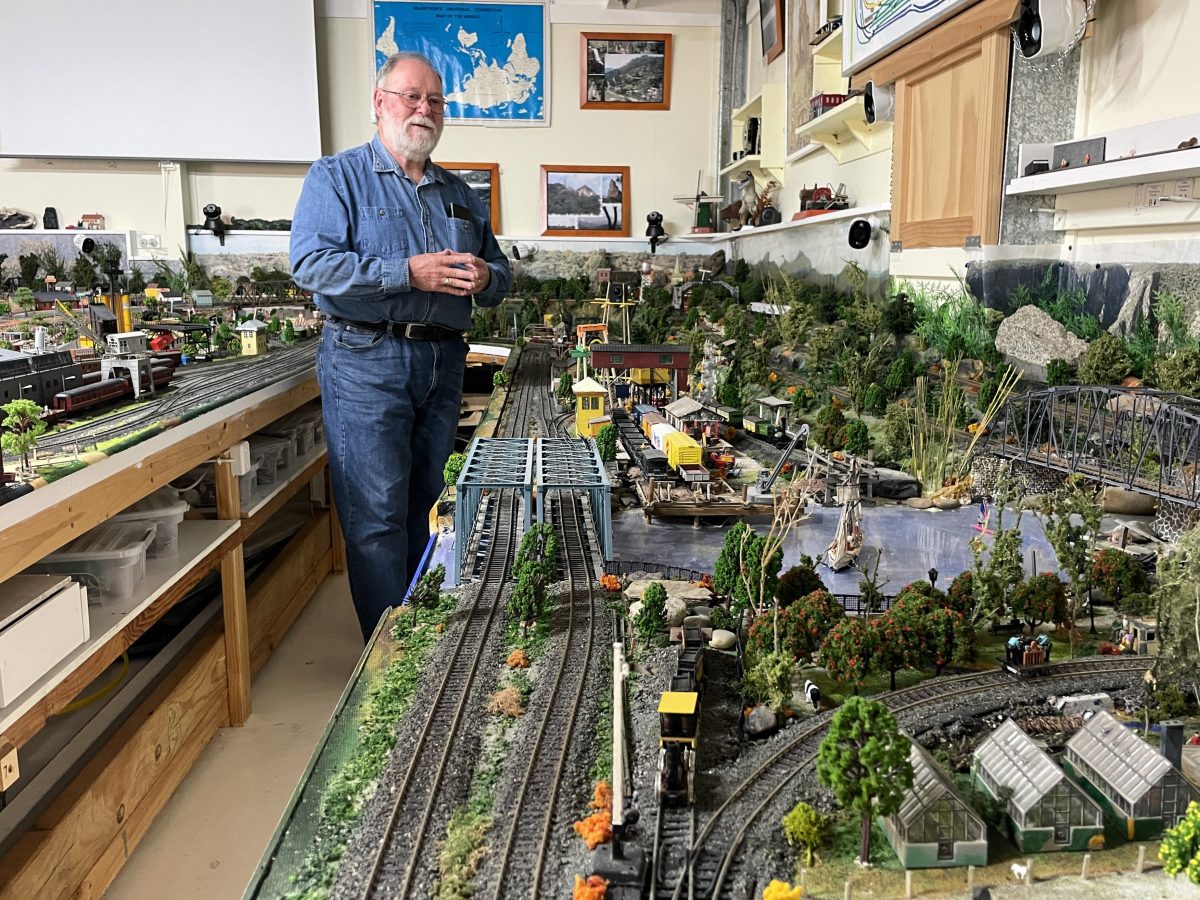
Dennis Frost decided to pursue his hobby and build an incredible model railway after he was diagnosed with dementia. Photos: Keeli Royle.
Dementia advocates are pushing for communities to adapt to the demands of the increasing population of people living with the condition by involving those with first-hand experiences in key decision-making processes that could improve their day-to-day lifestyle in the places they live and love.
Dennis Frost is one of the almost half a million Australians living with dementia and despite being diagnosed 12 years ago, the advocate, author, advisor and creator continues to prove the incredible capabilities of people with the condition and help others to reach their potential.
“Each person is unique in the way it presents and it doesn’t necessarily progress in the way that you’re led to believe,” Dennis said.
“Don’t give up because there’s a lot you can do, and that’s one of the things I’m trying to do is show people that I can do things quite well that many people can’t do.”
Dennis was first exposed to dementia almost two decades ago when hospital doctors gave his 90-year-old mother a snap diagnosis after she had a fall due to a minor stroke and moved her into aged care.
But it was years later while he was working three jobs that Dennis sensed something wasn’t right within himself.
“This person started talking to me out at Bunnings and was talking about lots of aspects about where I worked and I had no idea who it was but she knew a lot about me and what I was doing,” he said.
“It was two or three days later that I figured out that she worked at administration on the floor below, then I started to realise that the people I’d been working with at that stage for 10 years, if I saw them outside of the normal workplace then I didn’t recognise them.”
He approached his general practitioner and went through testing, which all came back clear, so he was referred to a local geriatrician for more scans.
There were still no alarm bells, just the equivalent of a strange small smudge that the specialist believed might be worth investigating.
“So got referred on to the Brain and Mind Frontier Centre at the University of New South Wales and Prince of Wales Hospital and they did an MRI and you could see a lot of degenerative changes in the brain,” Dennis said.
“I was then told that I had three to six years to live.”
Despite the devastating prognosis just days after his 58th birthday, Dennis was just relieved to have an answer.
“That took literally over 12 months to get to that point,” he said. “This was in June and I’d already decided at the beginning of the year that I would start to not retire but wind back so I’d have more spare time to do other things and one thing that I wanted to do was to build a model railway.”
“That really has been something that has kept me occupied for the past 10 years.”
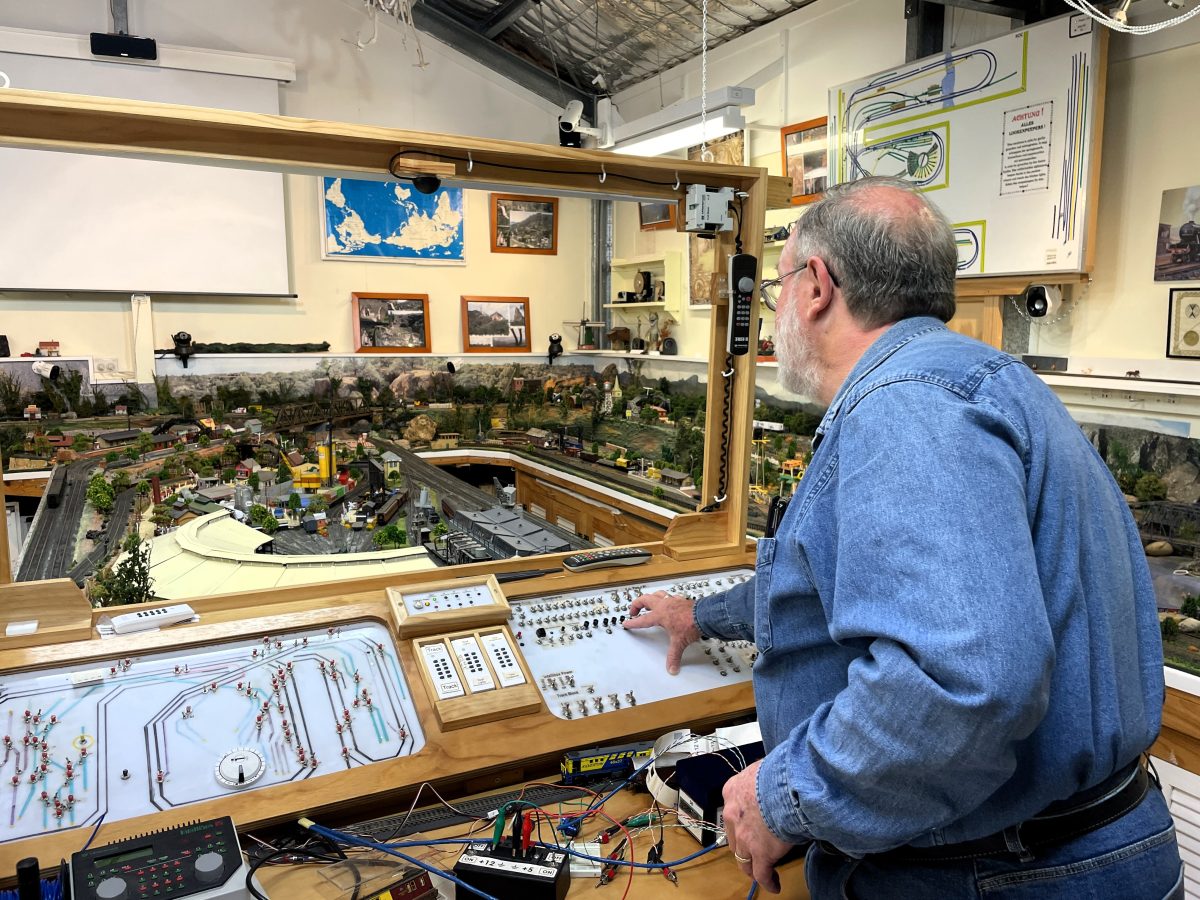
Dennis wants to show people with dementia that they can still pursue their hobbies and passions.
But figuring out the next steps of his care was not as straightforward.
“When I was diagnosed I was given a list of the dementia nurses within the health system for the state and I was told to find the appropriate number and ring them,” he said. “I found the local number, rang there and was basically told that if I was capable of ringing the number then they couldn’t help.”
Through joining dementia networks and associations right across the world, Dennis became more informed of the unique experiences and needs of people living with the condition.
His insight has seen him attend international conferences, travel the country giving presentations, advising groups like Dementia Australia and the Parliamentary Friends of Dementia and even be key in leading local initiatives like Dementia Friendly Kiama.
“There has been a lot of change in the past 10 years, there’s a lot of stuff happening, a lot at the ground level but there’s still a long way to go.”
“Physically there are lots of things that can be changed but they’re probably secondary and if it’s done properly you won’t notice them,” he said. “It really comes down to, from my perspective, people’s awareness and acceptance.”
Dementia Australia CEO Maree McCabe said Dementia Action Week aims to promote better education and awareness around the condition.
“Given that there are over 400,000 Australians living with dementia and we anticipate around a million by 2058, there won’t be anyone who is not impacted in some way,” Maree said. “So we want to get the message out to communities about the things that they can do to support people living with dementia.”
A key factor is debunking the myth that it exclusively impacts elderly people, and recognising the many ways it can present.
“People say it’s just a bit of memory loss but it actually affects people’s everyday ability to function and it’s the second leading cause of death in Australia after heart disease and the leading cause of death in women,” Maree said.
“The ways it can manifest, it can be memory loss if it’s related to Alzheimer’s disease, but it might be a change in personality, a change in mood, but there’s always a loss of function, so things that people could previously do well, they’re not able to.”
People are urged to learn how to reduce their own risk by getting any hearing loss checked out, exercising the body and mind, avoiding head injury and improving their diet.
But when it comes to how to make our communities dementia-friendly, Maree said the best solution is to talk directly to those who know best.
“Ask people living with dementia in the community ‘What is it that would make a difference to you,’ they’re the experts.”
If this story has prompted any questions or concerns, please call the National Dementia Helpline 1800 100 500 (24 hours, 7 days a week) or visit dementia.org.au.










